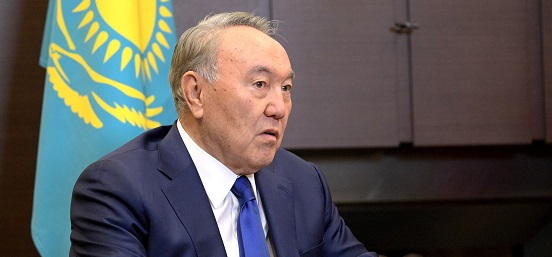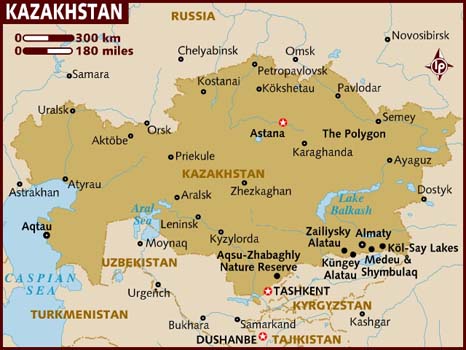Kazakh President Resigns
March 22, 2019 | Expert Insights

Kazakhstan President Nursultan Nazarbayev has announced his retirement after 30 years in power.
Background
Kazakhstan was the last of the Soviet republics to declare independence during the dissolution of the Soviet Union in 1991. It borders Russia to the north and China to the east.
Kazakhstan has extensive oil reserves that make it strategically important. It depends on Russia to export its oil to Europe. It has 12% of the world's uranium resources and has a fuel fabrication plant being built with 49% Chinese equity. The nation’s strategic location, the mainland corridor linking China with Russia and Europe, via newly expanded rail and highway networks, makes Kazakhstan the so-called “Buckle” in China’s new Belt and Road Initiative (BRI).
On February 21, Kazakhstani President Nursultan Nazarbayev sacked his entire government. He criticised former cabinet members and regional governors for failing to address social problems or shore up the country’s social safety net. The decision comes amid growing anger over declining living standards. Nazarbayev announced a spending package of billion dollars on social programmes and state salaries along with major investments in infrastructure.

Analysis
Kazakhstan’s President Nursultan Nazarbayev announced that he will step down after 30 years in power. Nazarbayev took the helm in Kazakhstan as its Communist Party chief of the republic in 1989 when it was part of the Soviet Union, and he was first elected its president weeks before the 1991 Soviet collapse gave the country its independence. “I have taken a decision, which was not easy for me, to resign as president,” Nazarbayev said, noting he was the “first president of independent Kazakhstan”.
He will retain the honorary title of "Elbasy" or "Leader of the Nation" and continue to wield considerable political power. He said he will remain chairman of the nation's Security Council and the head of the ruling Nur Otan party. He has maintained a delicate balance between Russia and the West, leading Kazakhstan to join a Russia-dominated economic alliance of ex-Soviet nations, but cultivating close energy ties and other links with the West. He was lauded abroad for modernizing the oil industry and his decision to give up the nuclear weapons that Kazakhstan had inherited from the Soviet Union.
Nazarbayev said he saw his task now as mentoring a new generation of leaders. He is expected to hand-pick a successor. He led the country through the economic turbulence of the 1990s while consolidating his hold on power in a series of elections that began to resemble coronations. He was last elected in 2015 with 97.7% of the vote. He has been widely praised for maintaining stability and ethnic peace in Kazakhstan but he also has faced criticism for marginalizing the political opposition and creating what is effectively a one-party state.
Kassym-Jomart Tokayev, the speaker of the upper house of parliament, will take over as the country’s acting president for the remainder of his term in line with the constitution. Konstantin Kosachev, the head of the foreign affairs committee in the upper house of the Russian parliament, said Nazarbayev will retain clout in Kazakhstan and "there will be no radical changes in foreign or home policies."
The resignation comes just weeks after he dismissed the country’s government. While Nazarbayev’s resignation “comes as a surprise, it does not signal any immediate major policy shifts,” said Kate Mallinson of Chatham House. His announcement came a year ahead of the country's next scheduled presidential election and amid growing frustration over falling living standards.
Assessment
Our assessment is that Nazarbayev's resignation will set the stage for a potential battle between Russia and the United States for influence with the successor government. We believe that Nazarbayev’s resignation is unprecedented in terms of the political norms of post-Soviet Central Asia, where leaders have so far refused to yield power.
India Watch
Kazakhstan foreign policy "remains unchanged" in the aftermath of its President Nursultan Nazarbayev's resignation as the head of state, said Bulat Sarsenbayev, Ambassador of Kazakhstan to India. India has sought to expand ties after mounting concern over the growth of the economic and strategic influence of the People's Republic of China.
China’s expanding war on Islam has been met with resentment after the detention of ethnic Kazakhs in ‘political re-education camps. This has potentially granted India the opportunity to increase its commerce and strategic ties with Kazakhstan, which occupies a major expanse of territory in Central Asia with extensive oil, natural gas and mineral reserves.








Comments